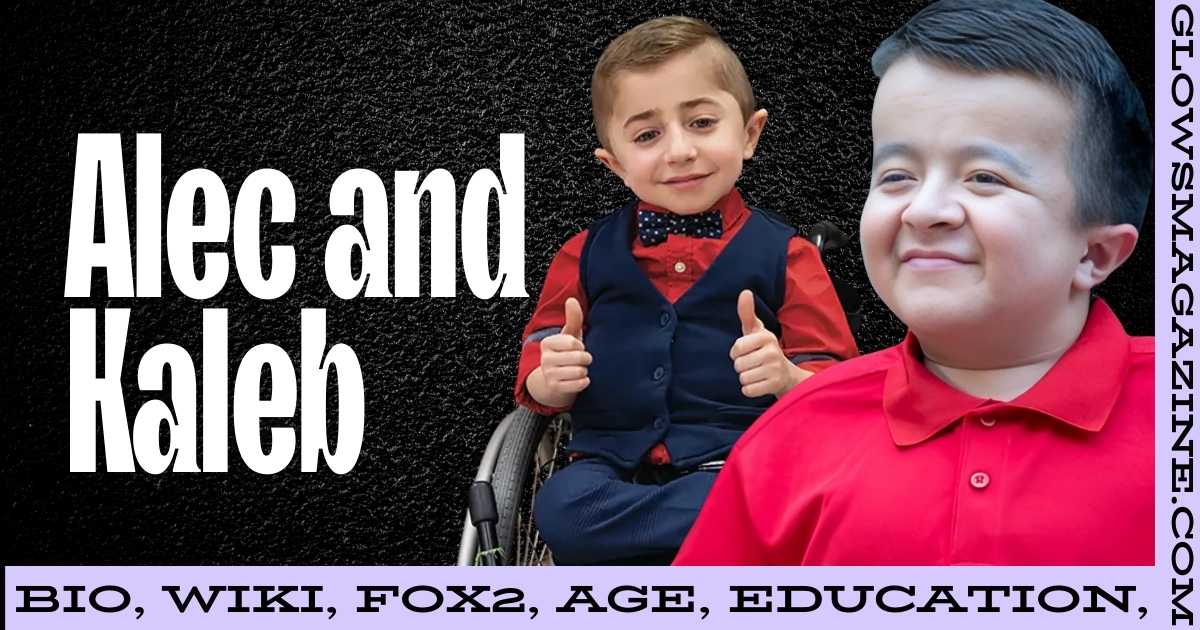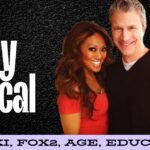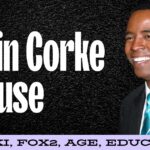When you flip through television channels, you’ve likely encountered the heartwarming Shriners commercials featuring two remarkable young men. Alec and Kaleb have become household names, capturing millions of hearts with their infectious smiles and unwavering optimism. But behind their inspiring appearances lies a question that countless viewers ask: do Alec and Kaleb get paid for commercials?
This inspirational story goes far beyond simple compensation questions. Alec Cabacungan and Kaleb-Wolf De Melo Torres represent something much more profound – they’re living proof that physical challenges can’t dim the human spirit. Their journey with Shriners Hospitals for Children has transformed not only their own lives but also changed how America views disability and resilience.
As child ambassadors for one of the nation’s most respected nonprofit organizations, they’ve sparked curiosity about everything from their net worth to their medical conditions. Today, we’ll dive deep into their remarkable lives, exploring the financial realities, personal struggles, and incredible achievements that make their story so compelling.
Do Alec and Kaleb Get Paid for Commercials?
The question of whether Alec and Kaleb receive compensation for their Shriners commercials touches on complex industry standards and ethical considerations. Unlike traditional child actors who earn appearance fees for advertisement pay, Shriners spokespeople operate under different circumstances entirely.
Shriners Hospitals for Children, as a nonprofit organization, typically doesn’t provide direct commercial payment to their patient ambassadors in the same way entertainment companies compensate performers. However, this doesn’t mean Alec from Shriners and Kaleb from Shriners receive nothing for their invaluable contributions.
Industry Standards for Child Spokespeople
The entertainment industry maintains strict regulations governing child performers, especially those under 18. These philanthropic group arrangements often include:
- Educational support and scholarships
- Medical care continuation
- Travel and accommodation expenses
- Professional development opportunities
- Trust fund contributions for future needs
Shriners for Children has consistently maintained transparency about their approach to spokesperson relationships. Rather than traditional earnings, they focus on providing long-term benefits that serve their young ambassadors’ best interests.
Legal Protections and Considerations
Child labor laws require specific protections for minors appearing in any form of media. Even nonprofit advocacy work must comply with:
| Protection Type | Requirement | Application to Shriners |
| Work Hour Limits | Maximum hours per day/week | Strictly monitored filming schedules |
| Education Requirements | Continued schooling | Full educational support provided |
| Financial Safeguards | Protected earnings accounts | Alternative benefit structures |
| Parental Oversight | Guardian involvement | Family-centered decision making |
The hospital charity ensures all legal requirements are met while focusing on the inspirational figure development of their ambassadors rather than purely financial arrangements.
What is Kaleb from Shriners’ Net Worth?
Determining Kaleb’s net worth presents unique challenges since traditional wealth measurements don’t apply to child ambassadors of charitable groups. Kaleb-Wolf De Melo Torres has built his reputation through dedication to hospital patient advocacy rather than conventional income generation.
Understanding Kaleb’s Financial Landscape
Kaleb from Shriners likely benefits from several financial status enhancers that don’t appear in typical net worth calculations:
- Full medical care coverage (potentially worth hundreds of thousands)
- Educational scholarships and support
- Travel opportunities and experiences
- Professional networking access
- Media training and skill development
Alternative Value Measurements
Rather than focusing solely on Kaleb earnings, consider the inspirational figure‘s broader impact:
Kaleb’s “Wealth” Beyond Money:
- Invaluable medical treatment access
- National platform for advocacy
- Educational opportunities at top institutions
- Professional development in communications
- Network of medical and media professionals
The Shriners child has accumulated experiences and opportunities that many adults never receive. His true Kaleb fortune lies in the combination of life-changing medical care, educational support, and the platform to inspire millions.
Future Financial Prospects
Kaleb’s association with Shriners Hospitals positions him for potential future earnings through:
- Motivational speaking engagements
- Media appearances and interviews
- Book deals or memoir opportunities
- Advocacy work consulting
- Educational and professional development
What is Alec from Shriners’ Net Worth?
Alec Cabacungan’s financial status represents a more developed case study, given his longer tenure as a Shriners ambassador and his transition into young adulthood. Alec from Shriners has leveraged his platform into tangible educational and professional opportunities.
Alec’s Educational Investments
Alec’s net worth extends beyond traditional monetary measures. His enrollment at Northwestern University represents a significant investment in his future earning potential:
Educational Value Breakdown:
- Northwestern University tuition: $60,000+ annually
- Living expenses coverage: $15,000+ annually
- Professional networking opportunities: Invaluable
- Career preparation in sports journalism: Foundation for future success
Professional Development Achievements
The motivational speaker has transformed his Shriners experience into professional credentials:
- Media training expertise
- Public speaking proficiency
- Advocacy experience
- Healthcare industry connections
- Entertainment industry exposure
Potential Revenue Streams
Unlike Kaleb, Alec has reached an age where traditional income generation becomes possible:
- Speaking engagement fees: $5,000-$15,000 per event
- Media consultation work: $100-$500 per hour
- Book advance potential: $50,000-$200,000
- Broadcasting opportunities: Entry-level positions $30,000-$50,000 annually
Alec’s wealth accumulation strategy focuses on building sustainable earning power rather than immediate financial gain.
How Old Are Alec and Kaleb from the Shriners Commercials?
Understanding the ages of these Shriners kids provides crucial context for their journey and achievements. Alec and Kaleb have grown up in the public eye, allowing audiences to witness their remarkable development over the years.
Current Ages and Milestones
Alec Cabacungan is currently 21 years old, having been born in 2002. His journey with Shriners for Children began when he was just a young child, making him one of the organization’s longest-serving spokespeople.
Kaleb-Wolf De Melo Torres is 15 years old, born in 2009. Despite his younger age, Kaleb has already made an enormous impact as a hospital patient turned advocate.
Age-Related Commercial Evolution
Their Shriners TV spots have evolved dramatically as they’ve matured:
| Alec’s Journey | Age Range | Commercial Focus |
| Early Years | 6-10 | Basic awareness, medical needs |
| Middle Period | 11-15 | Education importance, resilience |
| Teen Years | 16-18 | College preparation, independence |
| Young Adult | 19-21 | Career goals, giving back |
Kaleb’s Development Timeline:
- Ages 5-8: Introduction to audiences, basic advocacy
- Ages 9-12: Increased confidence, humor development
- Ages 13-15: Leadership qualities, peer inspiration
Growing Up in Public
Both child ambassadors have navigated the unique challenges of maturing while representing a major nonprofit organization. Their inspirational story demonstrates how young people can maintain authenticity while serving as role models for millions.
The hospital advertisements showcase not just their medical journeys but their personal growth, educational achievements, and expanding worldviews. This evolution has helped audiences connect with them as real people rather than simply awareness ads subjects.
What Disabilities Do Alec and Kaleb Have?
Understanding the medical conditions that brought Alec and Kaleb to Shriners Hospitals provides essential context for appreciating their incredible achievements and the specialized care they’ve received.
Alec’s Medical Journey: Osteogenesis Imperfecta
Alec Cabacungan lives with osteogenesis imperfecta, commonly known as brittle bone disease. This rare disease affects collagen production, making bones extremely fragile and prone to fractures.
Osteogenesis Imperfecta Facts:
- Affects approximately 1 in 15,000-20,000 births
- Caused by genetic mutations affecting collagen
- Results in fragile bones that break easily
- Can impact growth, hearing, and dental development
- No cure exists, but treatments manage symptoms
Alec’s specific challenges include:
- Multiple bone fractures throughout childhood
- Growth limitations affecting height
- Mobility adaptations requiring assistive devices
- Ongoing medical monitoring and interventions
Kaleb’s Medical Challenges
Kaleb-Wolf De Melo Torres faces his own set of medical challenges, though specific details about his condition are less publicly detailed to protect his privacy as a minor.
What we do know about Kaleb’s health issue:
- Requires ongoing Shriners medical care
- Benefits from specialized treatments
- Has shown remarkable improvement over time
- Maintains active lifestyle despite challenges
Breaking Down Barriers and Misconceptions
Both young men have become powerful advocates for disability awareness, challenging stereotypes and demonstrating that medical conditions don’t define a person’s potential.
Common Misconceptions They’ve Helped Address:
- Physical limitations equal intellectual limitations – Both excel academically
- Disabled individuals need pity – They inspire through strength and humor
- Medical conditions prevent normal activities – They participate fully in life
- Rare diseases are too complex to understand – They educate through accessibility
The Role of Shriners in Their Care
Shriners Hospitals for Children specializes in treating complex genetic disorders and bone disorders. Their comprehensive approach includes:
- Advanced surgical techniques
- Rehabilitation therapy
- Assistive technology
- Psychological support
- Family counseling
- Educational advocacy
The nonprofit medical care model allows families to focus on healing rather than financial stress, enabling young patients like Alec and Kaleb to thrive.
Inspiring Medical Advances
Through their visibility, both spokespeople have helped raise awareness about rare disease research and treatment innovations. Their powerful message demonstrates how specialized care can transform lives and how patients can become advocates for others facing similar challenges.
Research Impact Areas:
- Increased funding for osteogenesis imperfecta research
- Greater awareness of pediatric bone disorders
- Improved treatment protocols
- Enhanced quality of life measures
- Expanded access to specialized care
Conclusion
The question “do Alec and Kaleb get paid for commercials?” opens a window into a much larger motivational journey. While traditional commercial payment may not define their relationship with Shriners Hospitals for Children, both young men have received something far more valuable – comprehensive medical care, educational opportunities, and a platform to inspire millions.
Alec Cabacungan and Kaleb-Wolf De Melo Torres represent the best of what happens when a nonprofit organization truly invests in its patients. Their life struggle has become a success story that transcends monetary compensation. Through their charity work, they’ve transformed from hospital patients into patient advocates, motivational speakers, and symbols of resilience.
FAQs
How old are Caleb and Alec from The Shriners commercial?
Alec is twenty-one, Kaleb is fifteen years old currently.
Do child actors get paid for commercials?
Yes, child actors typically receive payment for commercial appearances.
What happened to Alec from Shriners commercials?
Alec attends Northwestern University, continues advocacy work successfully today.
Does Alec Cabacungan drive?
Yes, Alec drives with adaptive equipment for his condition.










